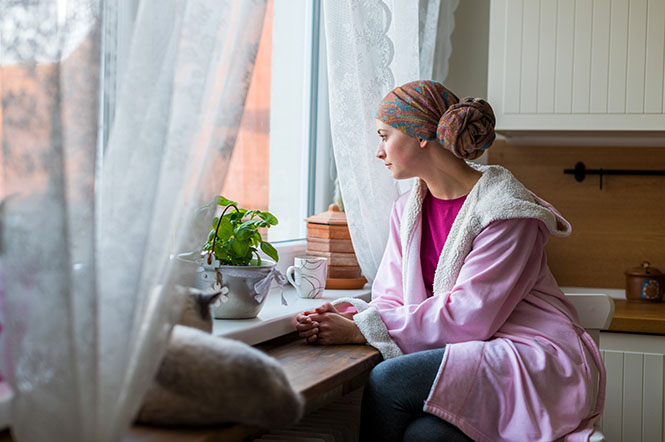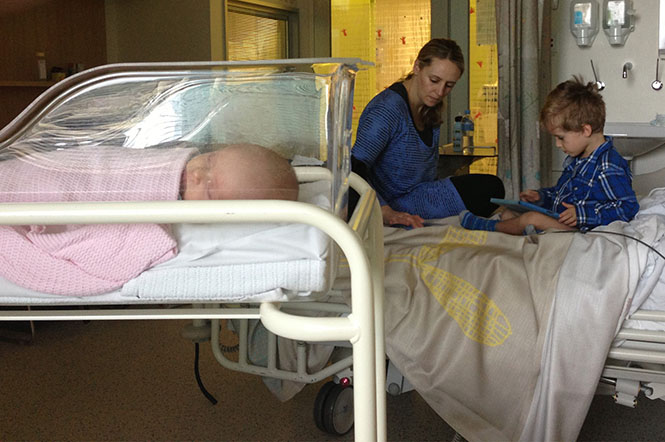
A cancer diagnosis can be shocking to say the least. Feelings of depression, fear and anxiety are common and normal responses for everyone involved.
Often when someone faces this unimaginable news, they are thrown into a frenzy of oncology appointments, treatment regimens and an information overload on how to look after themselves physically.
Unfortunately, the mental health of that patient is often overlooked, as is the mental well-being of those around them.
This trend applies to mental health issues more broadly speaking in Australia too.
Data from the Black Dog Institute shows that between 2017 and 2018, one in five Australians had a mental or behavioural condition. This means almost everyone in Australia will experience the effects of mental illness – either themselves or through someone close to them.
However, a staggering 54% of people with a mental illness do not access any treatment, even though about 3 in 4 of those who access a mental health inpatient service see improvement.
With 40% of cancer patients experiencing clinically significant mental health issues, including depression and anxiety, the need for care is evident.
Most connections received through Cancer Council Victoria’s 13 11 20 support line last year included some discussion or question about mental health, psychological distress or general wellbeing. And about 1,650 of those who connected said that ‘psychological and emotional support’ was their main reason for contact with our cancer nurses.
However, when Cancer Council recently conducted more than 600 consultations about cancer issues with community members and health professionals, the information showed that while psychological care following cancer treatment is highly valued by both groups, it is significantly under-resourced. That's why Cancer Council Victoria has made a submission to the Royal Commission into Victoria's Mental Health System.
Tamara, cancer carer and mother of two, knows this gap all too well. She wasn’t prepared for the emotional toll that her son’s cancer diagnosis would have on him, let alone herself.
“The medical care was amazing during Max’s cancer treatment. He also saw a physio and dentist at the hospital and had regular heart scans,” said Tamara.
“However, the one area that I didn’t feel was covered was his emotional wellbeing and mental health,” she said.
Tamara enquired about what psychological support was available for children at the hospital and discovered there was none. They also didn’t have any recommendations for psychologists specialising in children’s cancers outside of the hospital.
“At the time, I translated this to mean ‘don’t worry – he’ll be alright. You’re overreacting’.
"It wasn't until after his treatment had finished and we'd left the hospital that I sought private psychological support for Max. It was only then that it was explained to us just how much of an emotional impact this kind of trauma can have on children."

Tamara with her son, Max, and daughter, Abbie, at The Royal Children’s Hospital after Max was diagnosed.
For Tamara, it wasn’t until Max started doing well that she realised she was struggling herself.
“It was a long slow decline for me. I was anxious about things that wouldn’t normally worry me, my confidence took a dive and I didn’t want to socialise,” she said.
Eventually Tamara saw a psychologist and was told she had Post Traumatic Stress Disorder (PTSD). She spoke with her boss about her mental health issues, and thankfully, she insisted she take a couple weeks off work.
“Since then, I’ve been working on my health and I’ve learnt a lot about myself,” she said.
After seeking help for her emotional wellbeing, Tamara and her entire family are healthy and happy today.
Resources available for coping with the distress of a cancer diagnosis
If you’re struggling with the shock of a cancer diagnosis yourself or have a loved one affected, Cancer Council is here to help. You can call our experienced and compassionate cancer nurses on 13 11 20 or contact them through askanurse@cancervic.org.au.
They provide tailored emotional support, as well as informational and practical help, and can link you with our wider range of support programs. They can also talk about the effects of specific types of cancer and explain what will happen during certain cancer treatments.
Find out more about how to manage daily life with a cancer diagnosis, or to learn more about our support services.
Where to find more help
If you feel you’re struggling with a mental health condition, related to a cancer diagnosis or not, we recommend you visit your doctor for professional advice.
- Cancer and COVID-19 – find out more about cancer and COVID-19, and updates about our support services at this time.
- RUOK.org.au – if you’re worried about somebody’s wellbeing but not sure how to start the conversation, visit the R U OK? website.
- Beyond Blue – find information and support for issues associated with depression, suicide, anxiety disorders and other related mental disorders.